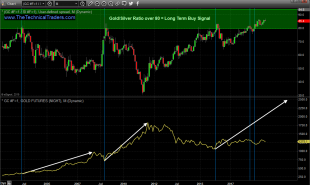
January 10, 2018 at 9:35 am
Written by Jake Anderson
(ANTIMEDIA) — 2017 was an incredible year for cryptocurrency and blockchain technology. Bitcoin doubters are apologizing for their disturbing lack of faith while tech moguls are waking up in droves to the revolutionary potential of how a truly decentralized blockchain could help end corruption and market manipulation by untrustworthy central actors. The newest voice on the scene with regard to decentralization is none other than Mark Zuckerberg, whose recent Facebook post has many thinking the social media magnate is considering entering the crypto sphere.
Zuckerberg, who starts each new year with lofty public goals for where and how he wants to steer Facebook, had some interesting things to say for 2018.
“[O]ne of the most interesting questions in technology right now is about centralization vs decentralization,” Zuckerberg wrote. “A lot of us got into technology because we believe it can be a decentralizing force that puts more power in people’s hands.
“But today, many people have lost faith in that promise. With the rise of a small number of big tech companies — and governments using technology to watch their citizens — many people now believe technology only centralizes power rather than decentralizes it.”
While it is more than a little ironic that Zuckerberg — who prides himself on tackling humanitarian problems — has the audacity to talk about giant tech companies using their technology to monitor people, he is at least acknowledging that a centralized corporatist technocracy might not have all the answers and that it may be necessary to destabilize that system.
“There are important counter-trends to this –like encryption and cryptocurrency — that take power from centralized systems and put it back into people’s hands,” Zuckerberg continued. “But they come with the risk of being harder to control. I’m interested to go deeper and study the positive and negative aspects of these technologies, and how best to use them in our services.”
While it may strike some that Zuckerberg was merely branding Facebook as a technologically progressive company, he did get around to some decent points, one of which is that the most disruptive technologies with the capacity for good are encryption and tools that promote decentralized peer-to-peer infrastructures, namely cryptocurrency. Encryption and cryptocurrency, he said, allow people to use technology to counter those with power.
Maybe Zuckerberg read Cory Doctorow’s Little Brother over the holidays and is suddenly interested in the idea of using technology to flip the script on authoritarian regimes. Or maybe the Zuck sees the writing on the wall and knows Facebook has some major trust issues going on with its core users. He seemed to even suggest in the post that encryption and cryptocurrency could be a way to “fix Facebook.”
Analysts are split on the reality of whether there could ever be a Facebook cryptocurrency. Yonatan Ben Shimon, CEO and founder of Matchpool, mentioned the possibility that Facebook could introduce a way to reward content creators on the site. This doesn’t seem too far off considering that at least one cryptocurrency, Steem, has a full-blown social network component to it that does exactly that — it rewards users for their posts with Steem coin. While Steemit isn’t anywhere close to where Facebook is in terms of users, a blockchain-based social network seems almost inevitable.
“If they take a step [toward this plan], it can be awesome,” said Shimon. “But in order to do it right, they have to be with a partner from the crypto space that understands how to build it in a decentralized way.”
Financial analyst Clement Thibault says Facebook isn’t the only major tech company considering cryptocurrency. Microsoft (sort of) partnered with IOTA to create a cryptocurrency market for the Internet of Things, and Google recently lent its support to the industry, as well.
“They have seen the enormous mainstream attention and amounts of money pouring into cryptocurrencies in 2017,” Thibault said. “Positioning yourself to take advantage of a new tool, new technology, and a potential new business opportunity just makes sense.”
Facebook has already ventured into the peer-to-peer market by adding that as a payment option on the chat app, WhatsApp, which they acquired. Does Zuckerberg foresee a future where more and more people want their tech companies to use a blockchain ledger to improve transparency, eliminate 3rd party auditors, and reduce corruption and dependence on costly bureaucracies?
“How exactly [Facebook] is able [to] find a place in true decentralized peer to peer transactions remains to be seen,” Thibault added. “The question of whether they do [integrate blockchain] depends on how and if they see a viable, profitable business model in doing so.”
That final bit sort of highlights the fundamental problem with Zuckerberg’s ambitions. There seems to be a duality in him: technology business acumen and a desire to help the world. But the world can’t always be helped by a good business model. Sometimes you can’t make money off doing the right thing. While Zuckerberg might have an interest in developing an apparatus for fighting centralized tyrannical systems, the data mining/social engineering/surveilling corporation he’s built is, in its current form, antithetical to that purpose.
Read more by MarketSlant Editor







